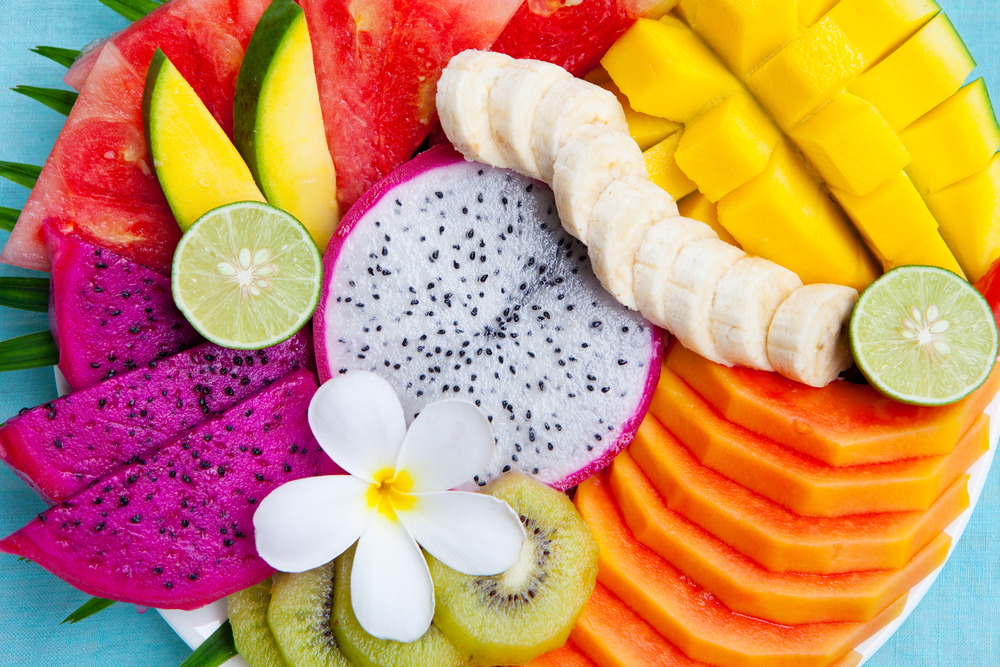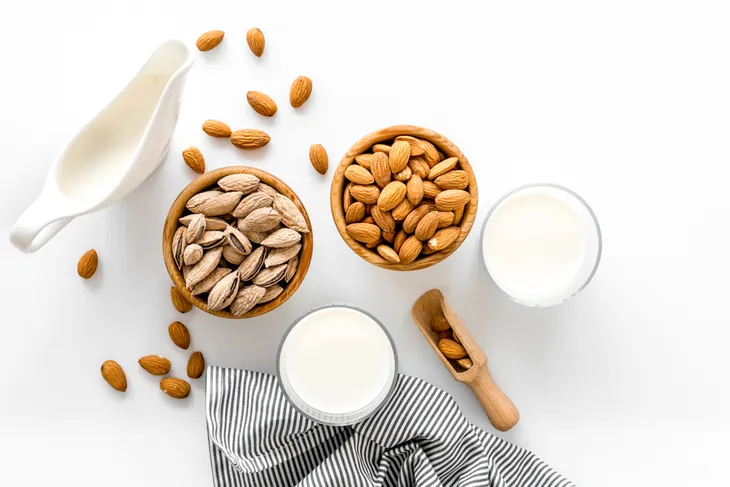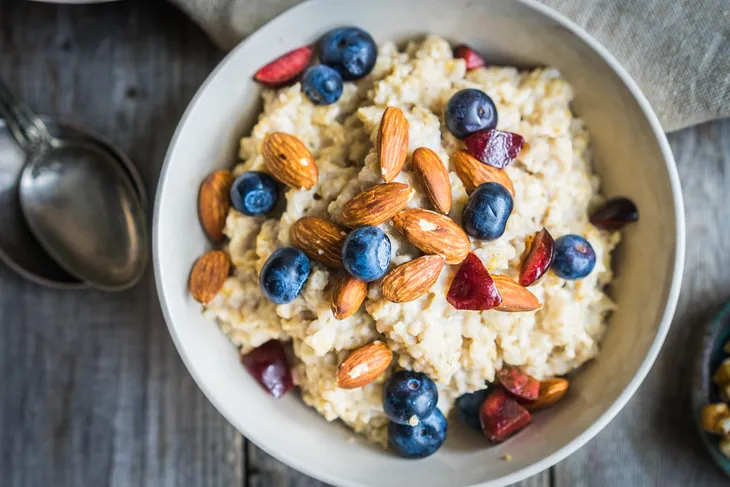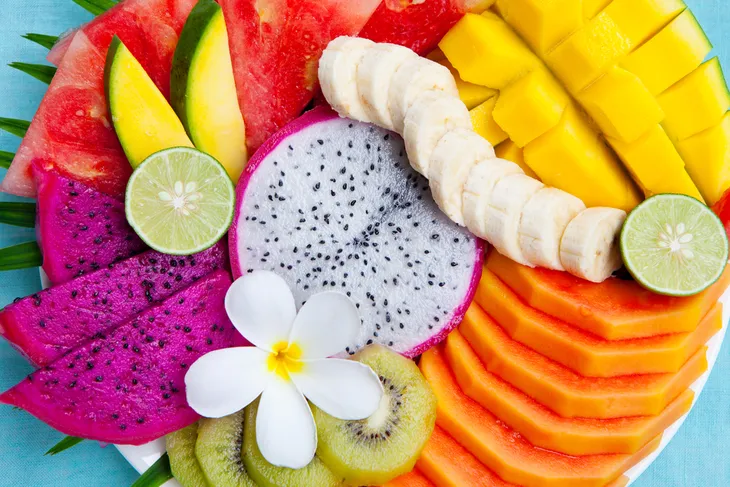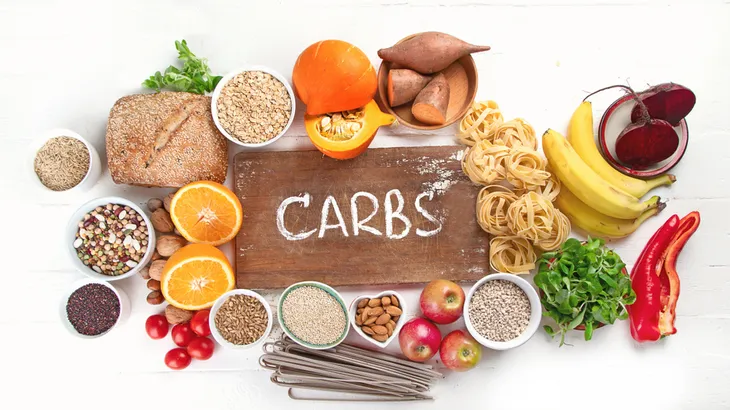For those with Crohn’s disease, deciding what to eat each day can be challenging. Many foods that are considered nutritious staples in most people’s diets can cause the intestines of those with Crohn’s—most often the small intestine—to become inflamed. According to WebMD, this makes it “hard to digest and absorb key nutrients from food,” which can lead to issues such as malnutrition, diarrhea and lack of appetite.
Fortunately, there are certain other foods that are easy on the digestive system and can help to soothe these symptoms when they occur. Here is a list of seven foods that those with Crohn’s disease should consider eating as part of their regular diet or while experiencing flare-ups.
Almond Milk
As many people with Crohn’s disease also suffer from lactose intolerance, dairy alternatives such as almond milk can be a good source of nutrients. Oftentimes, this plant-based milk is fortified with calcium, offering as much as regular milk. It typically contains vitamin D and E as well, and unsweetened varieties are particularly low in calories.
Eggs
When those with Crohn’s disease are battling with inflammation or recovering from a flare-up, the body often requires extra protein. For an easily digestible source, Everyday Health recommends eggs.
The animal protein in eggs also makes them an excellent source of amino acids, which can aid with the cell growth and tissue repair that are needed during the healing process. For variety, try preparing them several different ways, such as scrambled, fried, poached or hard-boiled.
Oatmeal
A delicious and nutritious comfort food, oatmeal makes for a great everyday breakfast or snack option for people with Crohn’s disease. Not only is it easily digestible, but the soluble fiber it contains can also help to reduce diarrhea during a flare-up.
The soluble fiber does this by “absorbing water in the gut and delaying the emptying of the intestines,” says Keren Gilbert, RD, founder and president of Decision Nutrition, in speaking with Everyday Health. Those who have Crohn’s disease with some gluten intolerance can also purchase gluten free oatmeal, says Julie Ching, registered dietitian.
Fatty Fish
Fatty fish such as salmon, tuna, mackerel and sardines are excellent sources of omega-3 fatty acids, which are beneficial for reducing inflammation throughout the body—including the intestines.
For those that don’t particularly enjoy fish, Best Health magazine recommends other sources of essential fatty acids, such as linseeds, linseed oil and walnuts. Although the body doesn’t convert the nutrients in these foods as efficiently, the source says “they’re most certainly better than nothing.”
Tropical Fruit
While many fruits can be problematic for those with Crohn’s disease due to their high-fiber content, Health.com says that certain tropical fruits—such as papaya, mango, bananas and a cantaloupe—are both nutritious and easily digestible.
Papaya, for instance, is a rich source of nutrients such as vitamin C, vitamin A, folate and potassium. The fruit also contains papain, an enzyme that helps the body digest proteins.
Low-Fiber Carbohydrates
While most people seek out whole-grain carbohydrates, for those with Crohn’s disease the fiber content in these foods can worsen intestinal inflammation. Refined foods such as pastas, breads and cereals, on the other hand, can be easily digested and can help to calm symptoms during a flare-up. These foods are generally quite low in nutrients, so look for products that are fortified with essential vitamins and minerals to assist with proper daily intake.
Other low-fiber carbohydrates include potatoes without the skins, which are a good source of calcium and can help the body retain its fluids during a flare-up, and rice, which is easy on the gut.
Smooth Nut Butters
In their raw form, nuts can be challenging for people with Crohn’s disease to digest. Nut butters, however, are much easier on the body and are a great way to consume the healthy fats, vitamin E and protein they offer.
While peanut butter is the most popular, almond and cashew butter are also great options. In order to ensure ease of digestion, however, it’s important to choose products that offer a smooth consistency. If you have an intolerance to nuts, you may also consider sunflower seed butter.
